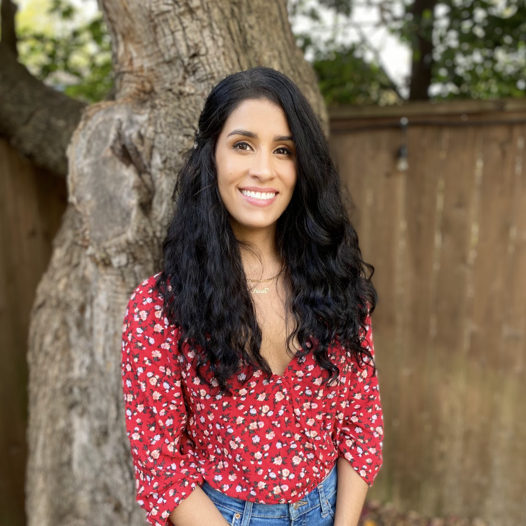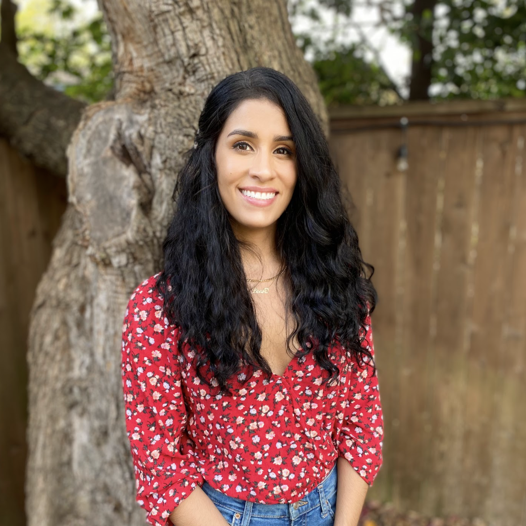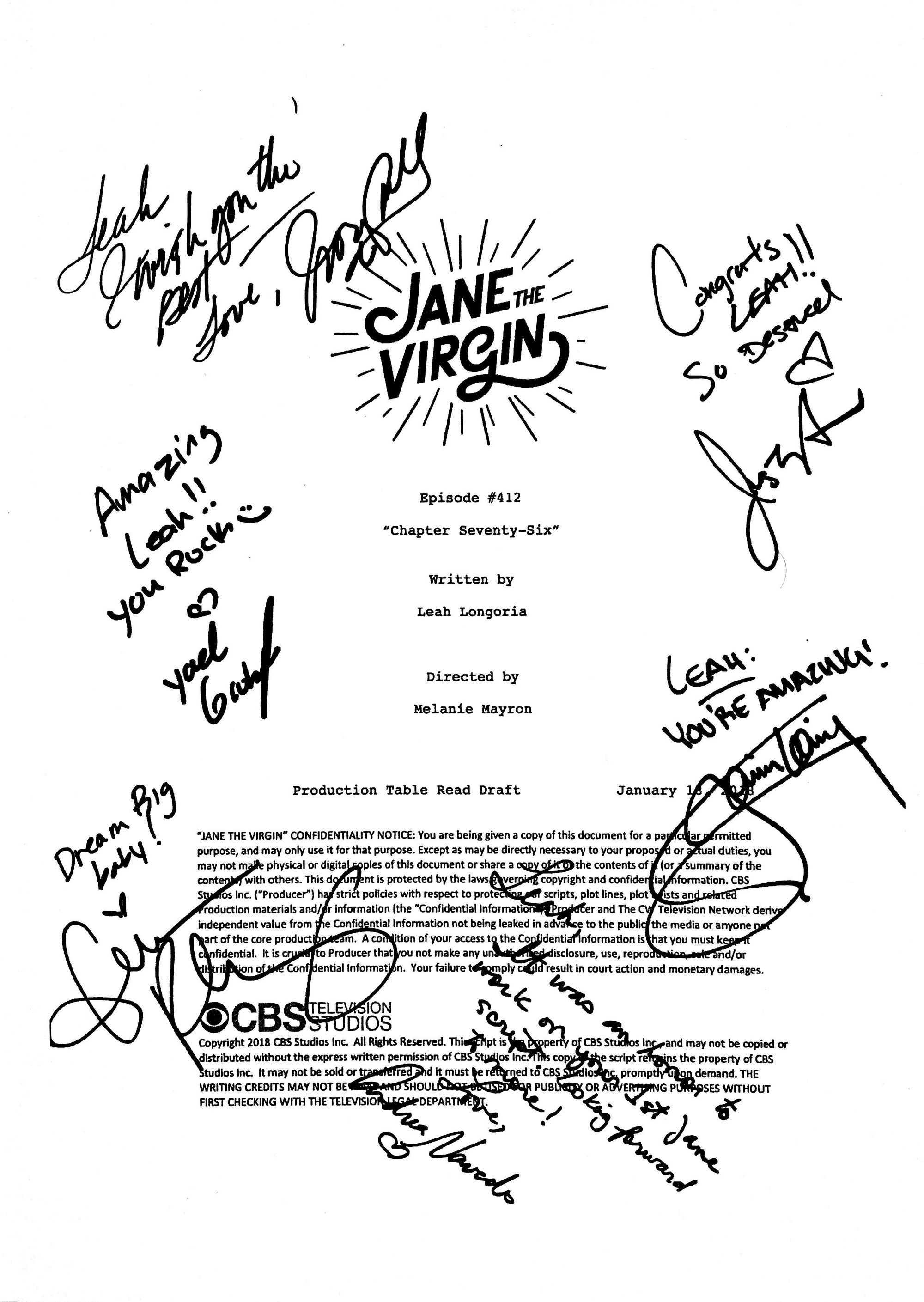It Takes a Character to Make a Character — Alumni Profile, Leah Longoria ’12
Guided by her passion for writing, Leah Longoria ‘12 has demonstrated grit working her way into the Hollywood writer’s room as Amherst’s first FAMS graduate.


“How could this moment be a TV show?” Leah Longoria ’12 often asks herself this question before quickly jotting down story ideas for the current episode she’s working on as a TV writer. As the first Film and Media Studies (FAMS) major to ever graduate from Amherst, Longoria is a natural storyteller. I was not surprised to hear about her success in the extremely cutthroat TV industry after learning about her relentless drive and work ethic. Her pluralistic pen has created characters in shows ranging from “Jane the Virgin” to “Monster High.”
But she is not just a writer. She is also a loving twin, a loyal friend, and a dedicated student. Her close relationships and great appreciation for the people in her life not only deeply moved me but also allowed me to glimpse the vibrant wholeness of her character.
In contrast to her ultra-demanding career and work schedule, there was a sense of ease in the way Longoria spoke. Her authenticity and sheer humbleness shone through her humorous remarks and lighthearted anecdotes. “What makes her really unusual, both as a student but also as a writer in Hollywood, is that she is both grounded and creative,” said Chair of FAMS Amelie Hastie, Longoria’s thesis advisor at Amherst. “I think that’s what also makes her flexible.”
I couldn’t agree more with Professor Hastie’s observation. From my hour-long conversation with Longoria, I got to appreciate the tremendous depth and extensiveness of a writer’s inner world. The multitude of her experiences from coast to coast, from job to job and from page to page, allowed her to craft vivid scenes and iconic characters that not only reflect her love of stories but also her love of life.
From Austin to Amherst
Longoria grew up with her identical twin sister Caris Longoria ’12 in Austin, Texas. Besides remarkably similar appearances — there are relatives who can’t tell them apart — the twin sisters share a deep spiritual connection. “If we had suddenly read each other’s minds, nothing [about] our relationship would change,” said Longoria. “Anytime I try to explain our relationship, words feel inadequate.” The same sentiment reverberates in Caris’ words. “[Leah] understands me on a level that no one else ever will.”
The Longoria twins stuck together all through elementary school and high school. With the hope of continuing to stay together in college, they were both drawn by the open curriculum and decided on a change of scenery from Texas to Western Massachusetts.
She joined Club Crew during her freshman year and stayed on the team for all four years. Head Crew Coach Bill Stekl remembers Longoria as a “diligent, focused, and a model technician of the sport.”
“Leah was always a focused athlete whether she was sitting in a shell learning how to leverage it forward, when she was in the company of her teammates as they prepared for practice, or when decompressing following a practice,” he added. “It did not surprise me when she won a gold medal with her teammates at the New England Championships in 2010.”
Longoria’s academic experience at Amherst shaped both the person she is and the path she leads in significant ways. When she first got to Amherst, she thought that she wanted to be an engineer. Being a daughter to a mechanical engineer and professor, she found herself “a kind of right-brained person.” That vision quickly changed after her first film class with Professor of German Christian Rogowski.
“I just loved [the class], and I ended up taking a lot more film classes because I could [due to] the open curriculum and soon realized [that] this is something I’m really passionate about,” Longoria recalled this switch in her academic interest. She realized that her interest in films and TV shows transcended the thrill of consuming them as an audience or a fan. She wanted to take part in their creation.
Halloween and “Jaws”
Besides Rogowski’s German film class, multiple other courses allowed Longoria to deepen her love for film studies. The most memorable and life-changing ones include a class on ’70s film and a class that touched on the filmmaker Pedro Almodóvar, both taught by Hastie. For the former class, Longoria wrote her final paper on Halloween and “Jaws,” a topic that she thoroughly enjoyed. Both Hastie and Longoria also shared a love for the Almodóvar film "Volver," and because of it, Hastie gifted Longoria a "Volver" poster which still hangs on the wall of her apartment today.
“All [those courses] made me feel like this isn’t just a hobby or an interest,” said Longoria. “It’s a possible career.”
Following that line of thought, Longoria went on to become the first-ever FAMS major graduating from Amherst. That process was not easy. In fact, the major was still being created during her time at Amherst, and the college envisioned that the first official class of FAMS majors wouldn’t graduate until 2014, two years after Longoria was set to receive her degree.
Still, Longoria found a way. Hastie recalls the moment vividly: she was standing in Stirn Auditorium, where she just finished teaching a class on television and announced this opportunity, when “this young woman walked up to [her] and said: ‘I want to [become a major].’” And that young woman was Longoria.
Multiple people — including Longoria’s close friends — advised her against the idea of declaring a second major besides math as late as junior year. There were requirements that she hadn’t even thought she would need to take, not to mention that doubling up with Math would make her course load extra heavy. To complete the major successfully would require tremendous tenacity and determination.
“[Hastie] was probably the first [person] to tell that I was going to [complete the FAMS major],” said Longoria. “I was very determined, and I got all the requirements done, took screenwriting and video production, and then I did a thesis with her as my thesis advisor.”
Specifically, in the screenwriting course taught by Professor Chris Mason Johnson in her senior year, Longoria got to complete the script for a quarter of a movie. The writing experience led her to further solidify her vision for a post-graduation plan. “I knew I needed to continue to write, and so I decided after I graduate[d] to do a grad school program [in TV writing],” she said.
The Longoria Method
Writing her thesis with Hastie was one of the first times when Longoria seamlessly integrated her passion for writing with an intensive academic project. As Amherst’s very first FAMS thesis student, Hastie suggested that Longoria set the bar very high.
She wrote her thesis on her four favorite TV shows at the time — “Dexter,” “Battlestar Galactica,” “Nip/Tuck,” and “Damages.” One could sense Longoria’s fascination with sci-fi thrillers simply from this lineup. Named after Princess Leia (sort of), Longoria grew up on sci-fi and managed to formulate her thesis around some of the things she loved the most. She explored death on television, examined how it was portrayed and what it reflected about television as a medium.
“It was a lot of fun … just because I got to watch my favorite shows again and again,” said Longoria.
Beyond her creativity and hard work, Longoria’s ability to take suggestions and turn around on such a tight schedule reflected her extremely disciplined time management. In fact, Professor Hastie started using the phrase “Longoria Method” to describe Longoria’s quick working process of “submissions by Monday mornings, meetings on Monday afternoons, revisions within two to three days and drafting new work by the following Monday.” Professor Hastie still cites Longoria today as a “wonderful model for both an Amherst student and a FAMS major” to her students.
“She was made for the writers’ room,” said Professor Hastie.
Longoria went on to pursue a master’s in television production at Boston University after Amherst. The last semester of the program took place in Los Angeles, where she took classes at night and did internships during the day. Longoria’s early career thus took off in the country’s heart of film and television production.
Finding Her Way Back to the Pen
After she completed her first internship at FX, Longoria reached out to an Amherst alumnus, Dan Ehlij, who works at United Talent Agency (UTA) as a partner in the TV Lit department. During her time at UTA, she learned basically everything she knows about the business side of TV production. She also learned that working for a talent agency was not something she enjoyed.
Longoria rejects the idea that one has to “pay their dues” to succeed in the TV industry. “It was very much like kind of a boys club [at UTA]. And so that was a difficult thing to get through,” said Longoria. “I’ve met a lot of great people there and I made a lot of really good friends, but it wasn’t a work environment that appealed to me or that I enjoyed.”

Luckily, her connections through UTA helped her land a life-changing job. One of Ehlij’s clients, Jennie Snyder Urman, was the showrunner of “Jane the Virgin.” Longoria managed to get an interview with Urman and successfully got hired as a showrunner assistant.
Working for an incredibly hands-on showrunner like Urman meant that Longoria was expected to step into her role frequently. “I was in all the production meetings for [Urman], taking notes, coming up with ideas, working with [various] departments to come up with stuff, and then running it by her and getting her feedback, and then reporting back to [the departments] and making sure that all of what she wanted was carried out,” described Longoria.
Working 80-hour weeks for Urman, Longoria learned an incredible amount about TV production, inside and out. But during this time, Longoria was only writing on the side. The assistant position did not entail working on scripts with writers. She eventually found her way back to the pen as her talent was recognized by Urman while they were doing punch ups on the script — all writers coming up with suggestions for a draft together. Urman decided to give her an episode to freelance in season four of “Jane.”
“This is my dream,” said Longoria. “All the writers on that show are just incredible people and they were great in terms of guiding me and helping me write that first episode of television ever, supporting me in that process.” Her freelance episode was praised, and landed her a seat in the writer’s room for season five.
“It’s still surreal sometimes”
Today, Longoria is working on episodes for “Roswell, New Mexico.” It is a sci-fi drama series — it’s incredible how Longoria wrote a thesis about her favorite sci-fi series and not many years after, she is writing one in Hollywood.
“It’s still surreal sometimes,” said Longoria. “I still have days when….we release a script and I see the title page with my name on it — ‘written by Leah Longoria’ — that is still so surreal to me because it’s like a dream and not reality, even though at this point, I’ve written a good amount of episodes through television.”
From a production intern at FX to a staff writer for Jane the Virgin to a story editor at Roswell, New Mexico, Longoria took countless steps towards her goal, steady and determined. “She really worked her way up and showed off her talent,” said Longoria’s close friend Chelsea Whipp ’12. “It’s really incredible how hard she’s worked and how she has been able to achieve exactly what she set out for when she left Amherst.”
Despite her amazing achievements and relentless drive, Longoria remains incredibly humble. “I’m the one bragging about her at family gatherings and to my friends,” said Caris.
When asked what her proudest work is, Longoria suggested that it is the episode that she’s currently producing. Truly, her future is limitless as she continues to produce her best work yet. She sees herself potentially becoming a showrunner and hopes to produce her own feature one day. Amid all the uncertainty that the TV industry entails, one thing is certain: Longoria will be writing, no matter if it’s supporting other writers’ vision or creating her own show. As we’ve already seen, no obstacles could discourage her from keeping sight of the light at the end of the tunnel.





Comments ()